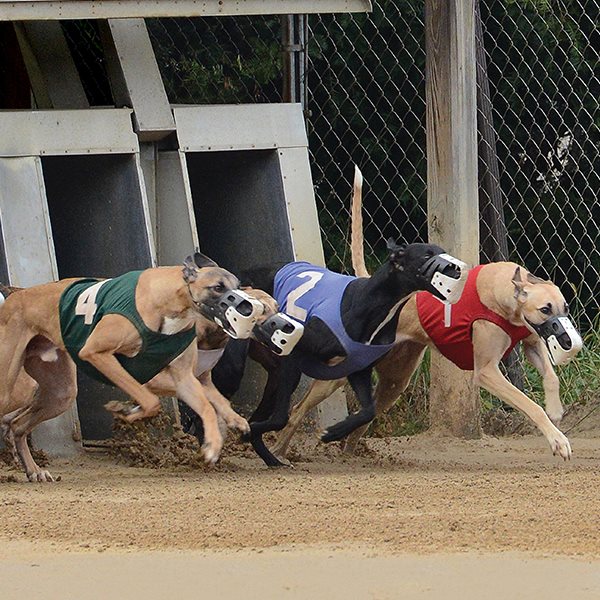The state of West Virginia is currently dealing with a major budget shortfall and serious issues such as decaying roadways. Two bills have been introduced to try and help the budget shortfall but would be harmful to the greyhound racing industry within the state. Both bills seek to end the subsidies for greyhound purchase and funds for breeders which would have major implications for the dog racing industry. Racing facilities that would be affected include the Wheeling Island Casino and Mardi Gras Casino and Resort.
The first bill is House Bill 4625 which would take as much as $17 million every year from breeders. The bill still mandates that tracks continue to provide dog racing if they want to be able to continue providing video lottery gaming and table gambling. This bill passed through the House earlier this week with a 61-36 vote.
The second bill is Senate Bill 641 which is being called the Decoupling Bill that moved through the Senate with a vote of 29-5. This bill would also take money from breeders but give tracks the option to continue with dog racing or stop the activity, either way being allowed to continue gambling activities.
Only two racetracks of the four in West Virginia offer dog racing, the Mardi Gras Casino and Resort located near the city of Charleston and the Wheeling Island Casino. Each bill would affect the funds of dog breeders but not horse breeding. Andy McKenzie, the mayor of Wheeling, stated that in a perfect world, neither bill would move forward. However, if one were to pass, the mayor is in favor of the decoupling bill as it would give Wheeling Island the best option to remain operational.
According to the mayor, the House version will strip the subsidy from dog racing but will mandate that dog racing must still occur. If the dogs are not subsidized, the breeders will lose money and dog racing will become a loser financially for the race track. McKenzie feels that the Senate version is stating that the money will be taken but the tracks have the option to stop racing due to the losses. The mayor’s concern is that Wheeling Island will shut down if the venue is forced to continue to offer racing options to be able to maintain their gambling licenses.
If Wheeling Casino does stop offering dog racing, the city would lose a considerable amount of revenues which are used to fund pensions of police and fire. McKenzie has traveled to Charleston to discuss the bills with lawmakers and seems to believe that the Senate will not be passing any measure that will require the tracks to continue to offer dog racing after the loss of funds.



